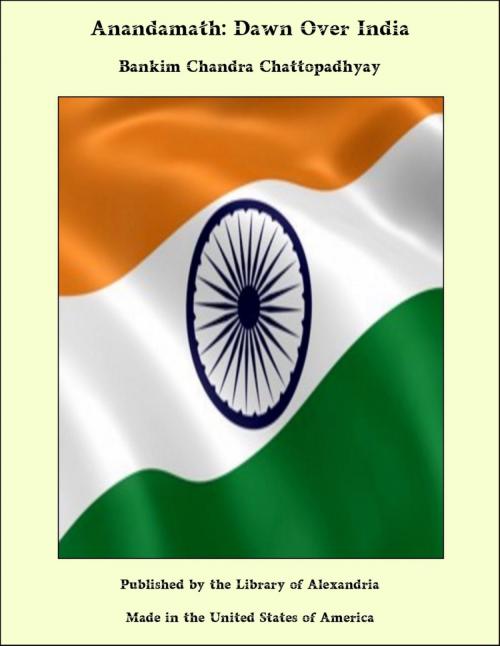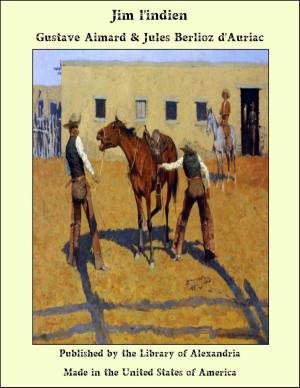Anandamath: Dawn Over India
Nonfiction, Religion & Spirituality, New Age, History, Fiction & Literature| Author: | Bankim Chandra Chattopadhyay | ISBN: | 9781465615510 |
| Publisher: | Library of Alexandria | Publication: | March 8, 2015 |
| Imprint: | Language: | English |
| Author: | Bankim Chandra Chattopadhyay |
| ISBN: | 9781465615510 |
| Publisher: | Library of Alexandria |
| Publication: | March 8, 2015 |
| Imprint: | |
| Language: | English |
It was hot at Padachina even for a summer day. In this village were many houses, but not a soul could be seen anywhere. The bazaar was full of shops and the lanes were lined with houses built either of brick or of mud. Every house was quiet. The shops were closed, and no one knew where the shopkeepers had gone. Even the street beggars were absent. The weavers wove no more. The merchants had no business. Philanthropic persons had nothing to give. Teachers closed their schools. Things had come to such a pass that children were even afraid to cry. The streets were empty. There were no bathers in the river. There were no human beings about the houses, no birds in the trees, no cattle in the pastures. Jackals and dogs morosely prowled in the graveyards and in the cremation grounds. One great house stood in this village. Its colossal pillars could be seen from a distance. But its doors were closed so tight that it was almost impossible for even a breath of air to enter. Within the house a man and his wife sat deeply absorbed in thought. Mahendra Singh and his wife were face to face with famine. The year before the harvests had been below normal. So rice was expensive this year and people began to suffer. Then during the rainy season it rained plentifully. The villagers at first looked upon this as a special mercy of God. Cowherds sang in joy, and the wives of the peasants began to pester their husbands for silver ornaments. All of a sudden, God frowned again. Not a drop of rain fell during the remaining months of the season. The rice fields dried into heaps of straw. Here and there a few fields yielded poor crops, but government agents bought these up for the army. So people began to starve again. At first they lived on one meal a day. Soon, even that became scarce, and they began to go without any food at all. The crop was too scanty, but the government revenue collector sought to advance his personal prestige by increasing the land revenue by ten per cent. And in dire misery Bengal shed bitter tears. Beggars increased in such numbers that charity soon became the most difficult thing to practise. Then disease began to spread. Farmers sold their cattle and their ploughs and ate up the seed grain. Then they sold their homes and farms. For lack of food they soon took to eating leaves of trees, then grass and when the grass was gone they ate weeds. People of certain castes began to eat cats, dogs and rats.
It was hot at Padachina even for a summer day. In this village were many houses, but not a soul could be seen anywhere. The bazaar was full of shops and the lanes were lined with houses built either of brick or of mud. Every house was quiet. The shops were closed, and no one knew where the shopkeepers had gone. Even the street beggars were absent. The weavers wove no more. The merchants had no business. Philanthropic persons had nothing to give. Teachers closed their schools. Things had come to such a pass that children were even afraid to cry. The streets were empty. There were no bathers in the river. There were no human beings about the houses, no birds in the trees, no cattle in the pastures. Jackals and dogs morosely prowled in the graveyards and in the cremation grounds. One great house stood in this village. Its colossal pillars could be seen from a distance. But its doors were closed so tight that it was almost impossible for even a breath of air to enter. Within the house a man and his wife sat deeply absorbed in thought. Mahendra Singh and his wife were face to face with famine. The year before the harvests had been below normal. So rice was expensive this year and people began to suffer. Then during the rainy season it rained plentifully. The villagers at first looked upon this as a special mercy of God. Cowherds sang in joy, and the wives of the peasants began to pester their husbands for silver ornaments. All of a sudden, God frowned again. Not a drop of rain fell during the remaining months of the season. The rice fields dried into heaps of straw. Here and there a few fields yielded poor crops, but government agents bought these up for the army. So people began to starve again. At first they lived on one meal a day. Soon, even that became scarce, and they began to go without any food at all. The crop was too scanty, but the government revenue collector sought to advance his personal prestige by increasing the land revenue by ten per cent. And in dire misery Bengal shed bitter tears. Beggars increased in such numbers that charity soon became the most difficult thing to practise. Then disease began to spread. Farmers sold their cattle and their ploughs and ate up the seed grain. Then they sold their homes and farms. For lack of food they soon took to eating leaves of trees, then grass and when the grass was gone they ate weeds. People of certain castes began to eat cats, dogs and rats.















